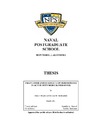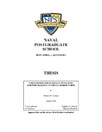Baby bumps in the road: The impact of parenthood on job performance, human capital, and career advancement
| dc.contributor.author | Healy, Olivia | |
| dc.contributor.author | Heisell, Jennifer | |
| dc.date | January 28, 2022 | |
| dc.date.accessioned | 2022-04-04T18:21:25Z | |
| dc.date.available | 2022-04-04T18:21:25Z | |
| dc.date.issued | 2020-01-28 | |
| dc.identifier.citation | Healy, Olivia, and Jennifer Heissel. "Baby Bumps in the Road: The Impact of Parenthood on Job Performance, Human Capital, and Career Advancement." Human Capital, and Career Advancement (January 28, 2022) (2022). | en_US |
| dc.identifier.uri | https://hdl.handle.net/10945/69308 | |
| dc.description.abstract | A robust literature establishes that women experience lasting penalties to their labor market earn- ings after having a child, but men do not. This paper explores possible factors behind earnings penalties. We evaluate the effect of parenthood on men’s and women’s job performance, human cap- ital accumulation, and career advancement using unique personnel data on U.S. Marines. To address selection of workers into parenthood, we estimate event study models around the first birth of a child. We include a comparison group of nonparents assigned “placebo births” based on key predictors of parenthood and outcomes, which we argue best approximates the counterfactual. Outcomes include standardized measures of job performance, such as physical fitness test scores, supervisor ratings of job proficiency, and firm-specific task scores (rifle and pistol marksmanship). We also study time spent in firm-specific training, formal years of education, and promotions. Among U.S. Marines who return to work with similar hours after having a child, we find declines in mothers’ job performance and months of firm-specific training in the two years following a birth. Consistent with these findings, women’s promotion trajectories slow in response to childbirth. Men have slightly lower physical performance in the first year postbirth, but other performance measures, human capital development, and promotion trajectories are largely unaffected. Mediation analyses suggest delays in promotions stem from mothers missing key job performance tests due to pregnancy and postpartum waivers. Last, we show longer paid maternity leave due to an unexpected leave ex- tension does not predict better or worse job-related outcomes. | en_US |
| dc.description.sponsorship | Funding from the Robert Wood Johnson Foundation’s Evidence for Action grant program (77124); the Institute of Education Sciences’ Multidisciplinary Program in Education Sciences (Award R305B140042); and Northwestern University’s Graduate Research Grant Program. | en_US |
| dc.format.extent | 59 p. | |
| dc.language.iso | en_US | |
| dc.publisher | SSRN | en_US |
| dc.rights | This publication is a work of the U.S. Government as defined in Title 17, United States Code, Section 101. Copyright protection is not available for this work in the United States. | en_US |
| dc.title | Baby bumps in the road: The impact of parenthood on job performance, human capital, and career advancement | en US |
| dc.type | Preprint | en_US |
| dc.contributor.corporate | Naval Postgraduate School | |
| dc.subject.author | Parenthood | en_US |
| dc.subject.author | Child Penalty | en_US |
| dc.subject.author | Gender Wage Gap | en_US |
| dc.subject.author | Promotion | en_US |
| dc.subject.author | Parental Leave | en_US |





